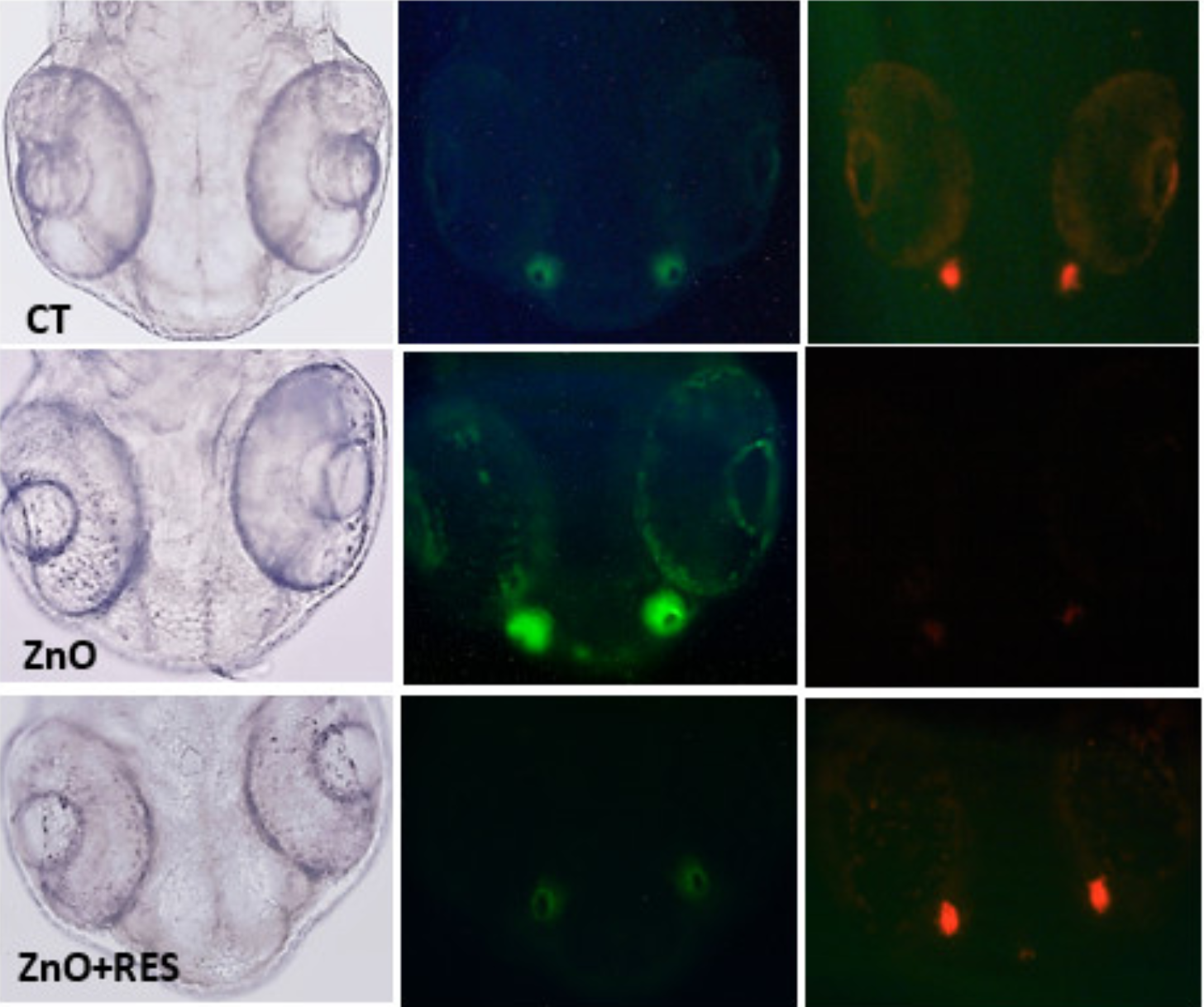Despite their wide industrial use, Zinc oxide (ZnO) nanoparticles (NPs) exhibit a high toxic potential while concerns of their health-related risks are still present, urging additional in vivo clarification studies. Oxidative stress is recognized as the primary trigger of NP-associated toxicity, suggesting antioxidants as a promising counteractive approach. Here, we investigated the protective effect of the natural antioxidant resveratrol against ZnO NP-induced toxicity in vivo using the zebrafish model. Our findings demonstrate that resveratrol counteracts ZnO NP-induced zebrafish lethality preventing cardiac morphological and functional damage. NP-induced vascular structural abnormalities during embryonic fish development were significantly counteracted by resveratrol treatment. Mechanistically, we further showed that resveratrol inhibits ROS increase, prevents mitochondrial membrane potential dysfunction, and counteracts cell apoptosis/necrosis elicited by ZnO NP. Overall, our data provide further evidence demonstrating the primary role of oxidative stress in NP-induced damage, and highlight new insights concerning the protective mechanism of antioxidants against nanomaterial toxicity.


